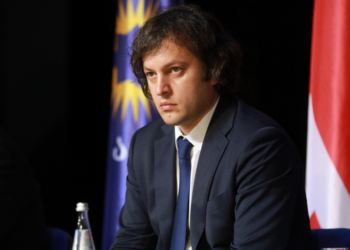Tea Tsulukiani, chair of the Temporary Investigation Commission reviewing the ruling regime in Georgia from 2003 to 2012, presented the commission’s findings at Tuesday’s parliamentary plenary session. The report exposes widespread and systematic human rights violations under the United National Movement (UNM) government, particularly during 2004–2012.
According to Tsulukiani, the commission conducted a thorough review of all available evidence within its mandate and concluded that the UNM’s “zero tolerance” criminal policy institutionalized torture and inhumane treatment across Georgia’s Ministry of Internal Affairs and penitentiary systems. These abuses were not isolated incidents but part of a state-sanctioned system of terror, with political leaders, including former President Mikheil Saakashvili, complicit in orchestrating these policies.
The report documents multiple forms of abuse, including harsh prison conditions, inadequate nutrition and medical care, violations of detainees’ personal and family rights, denial of legal defense, and suppression of information about violence. It details cruel, daily torture methods used to extract confessions, seize property, retaliate politically, or settle personal scores. Notably, up to 2,000 new tuberculosis cases were recorded annually, with prisoners deliberately housed to spread infection. Treatment for Hepatitis C was deliberately blocked to conceal its prevalence.
The Prosecutor’s Office frequently failed to investigate these abuses or was complicit, while courts ignored violations, violating both Georgian law and international human rights standards. State-controlled media also refused to report on these matters, the report claims. The commission highlights a culture of impunity where perpetrators of torture were often rewarded with presidential honors, urging the current president to review awards granted from 2004 to 2013 to identify any linked to crimes against humanity.
The investigation drew on various sources, including speeches from 2012 and forensic psychological evaluations showing lasting trauma in victims. The Public Defender’s Office was the only institution consistently addressing torture complaints until it was weakened between 2010 and 2012.
The report’s release sparked protests near Parliament, with demonstrators chanting “Slaves, go to Russia” and “Traitors to the country” as Georgian Dream deputies exited the building. Protesters attempted to block roads but were prevented by police. The Ministry of Internal Affairs reported detaining 16 people for administrative offenses related to obstructing traffic. Authorities urged demonstrators to protest lawfully and warned of consequences for further disruptions.
By Team GT














